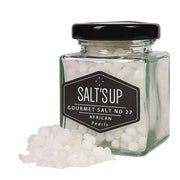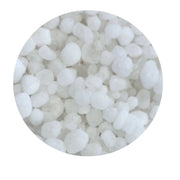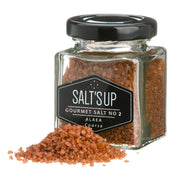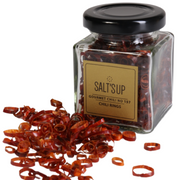KAMPOT RED pepper
Kampot pepper from the region of the same name in Cambodia is one of the best peppers in the world. The muggy-hot climate near the coast of the Gulf of Thailand and the heavy clay soils create the perfect basis for outstanding pepper qualities. This pepper is cultivated by hand, no artificial fertilizers or pesticides are used during cultivation.
All KAMPOT pepper varieties come from the same plant but the colour is determined by the degree of ripeness and processing. This red pepper is very rare and made from completely ripe, unpeeled pepper fruits. Red pepper is very difficult to produce, only very few and best pepper farmers dare to take this risk. Due to its high degree of ripeness, real red pepper is particularly aromatic and almost fruity, with a strong pungency.
We recommend using Red Kampot pepper only freshly grounded in order to bring out its full aroma perfectly. Our Kampot Red pepper delivers strong yet delicate aromas. Its taste, which can range from intensely spicy to mildly sweet also reveals floral and citrus hints. Kampot Red pepper has a unique flavour and smell distinguishing it from other types of peppercorns. The hot taste also has slight flavours of eucalyptus and mint, you have to try it out!
Country of origin: Cambodia
We recommend using Red Kampot pepper corn only freshly grounded in order to bring out its full aroma perfectly. Suits perfectly with meat, poultry and fish.
Taste can range from intensely spicy to mildy sweet also reveals floral and citrus hints.
These peppercorns are the best in taste and can also be used after grinding to add them to the fruit-like notes of crushed red pepper which are ideal for sweeter dessert dishes.
35gr / 1.24oz jar












